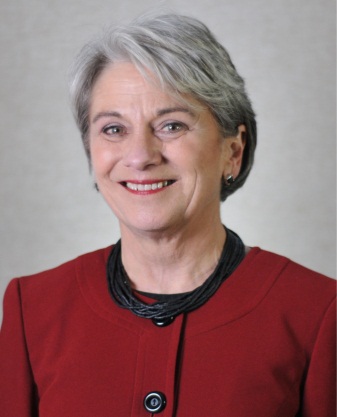“The Answer Is No”
Wisconsin still won’t take federal cash to expand Medicaid.
Thirty-one other states – including many with Republican governors and all of Wisconsin’s neighbors – have taken advantage of the federal government’s offer to pay what it costs to expand Medicaid health care coverage for low-income adults.
But, to those pushing for Wisconsin to become the 32nd state to take the federal cash and expand Medicaid, Department of Health Services Secretary Kitty Rhoades has a simple response:
“The answer is no,” Rhoades said in a WisconsinEye interview.
That answer hasn’t changed, even though Republican Gov. Scott Walker no longer cites Wisconsin’s decision as a reason to elect him President. Walker quit running for President Sept. 21 and has been on a “remember me?” tour of the state since then.
Why have Walker and Rhoades dug in and refuse to take the federal aid and expand Medicaid?
Because, Rhoades said, Wisconsin “made the right decision” when it guaranteed Medicaid coverage for every childless adult at or below 100% of the federal poverty guideline. That forced about 62,700 adults whose incomes were between 100% and 133% of the federal poverty guideline off Medicaid.
But most of those 62,700 got health care through the Affordable Care Act (ACA) or their employers, Rhoades said.
And, Washington’s offer to pay costs to expand Medicaid is only a “temporary subsidy,” the state official added. The federal reimbursement “is going down. You know that.”
Under the ACA, the federal government will pay 100% of Medicaid expansion costs through 2016 and then 95% in 2017; 94% in 2018, 93% in 2019, and 90% after that.
The Legislative Fiscal Bureau has estimated that taking advantage of Washington’s funding offer would add 86,000 childless adults to the Medicaid program.
According to the state Department of Health Services Website, 1.19 million Wisconsin residents – or 21% of the state’s population – got all or part of their health care through Medicaid in September. Of that 1.19 million, 423,629 – or 35% – were children and 217,786 – or 18% – were elderly and/or disabled.
But Rhoades, a former cochairman of the Legislature’s Finance Committee, said because the federal reimbursement levels will drop in the future, expanding Medicaid in Wisconsin would create a future or “structural” state budget deficit.
Rhoades refused to criticize Republican governors like Terry Branstad in Iowa, John Kasich in Ohio and Mike Pence in Indiana for taking the federal dollars and expanding Medicaid coverage in their states, however.
“I don’t live there,” Rhoades said. “I don’t work there. We’re a national model for the way we’ve done it.”
Rhoades said savings must be found in Wisconsin’s $9.2-billion Medicaid program or, as residents get older and enrollment grows, it could force elected officials to choose between aiding K12 schools or paying Medicaid bills.
That’s why Republican legislators and the governor told Rhoades to seek a federal waiver that, if submitted and approved, could potentially lead to these Medicaid changes in Wisconsin: Drug testing and screening participants. Limiting eligibility to four years. Requiring that Medicaid enrollees pay premiums.
Rhoades said her biggest fear is “not addressing” ways to control Medicaid costs, which increased 10% in a year. Otherwise, she said, the only ways to control spending is adjusting rates, benefits and eligibility criteria.
“That’s not how I want to see reforms,” Rhoades added.
But groups like AARP Wisconsin say the state should learn from those 31 other states, take the federal cash and expand Medicaid coverage.
“All of Wisconsin’s childless adults and parents between 100% and 138% of the poverty level received lesser access to care and benefits then did adults in those states that accepted Medicaid expansion,” said AARP Associate State Director Helen Marks Dicks.
“At a time when many in state government bemoan the increasing cost of the Medicaid program, [elected officials] are leaving millions of dollars on the table,” she added.
If Wisconsin joins those other states, Marks Dicks added, “Childless adults benefit, low income parents benefit, the uninsured benefit, health care provider and systems benefit and the state’s bottom line benefits.”
Steven Walters is a senior producer for the nonprofit public affairs channel WisconsinEye. Contact him at stevenscwalters@gmail.com
The State of Politics
-
A Wisconsin Political Trivia Quiz
 Dec 15th, 2025 by Steven Walters
Dec 15th, 2025 by Steven Walters
-
The Fight Over Wisconsin’s House Districts
 Dec 8th, 2025 by Steven Walters
Dec 8th, 2025 by Steven Walters
-
The Battle Over On-Line Betting
 Nov 24th, 2025 by Steven Walters
Nov 24th, 2025 by Steven Walters























Kitty: You’re a national model of political corruption and ignorance. Hope you enjoy knowing that you have denied thousands of poor Wisconsin citizens of healthcare. It takes a low form of human being to deny healthcare for political gain.
Wisconsin could look more like Minnesota, Iowa and Illinois in terms of the uninsured if it were not for the despicable Kitty and Walker. The answer should be a resounding YES! Check out this map.
http://www.nytimes.com/interactive/2015/10/31/upshot/who-still-doesnt-have-health-insurance-obamacare.html?mabReward=A1&action=click&pgtype=Homepage®ion=CColumn&module=Recommendation&src=rechp&WT.nav=RecEngine